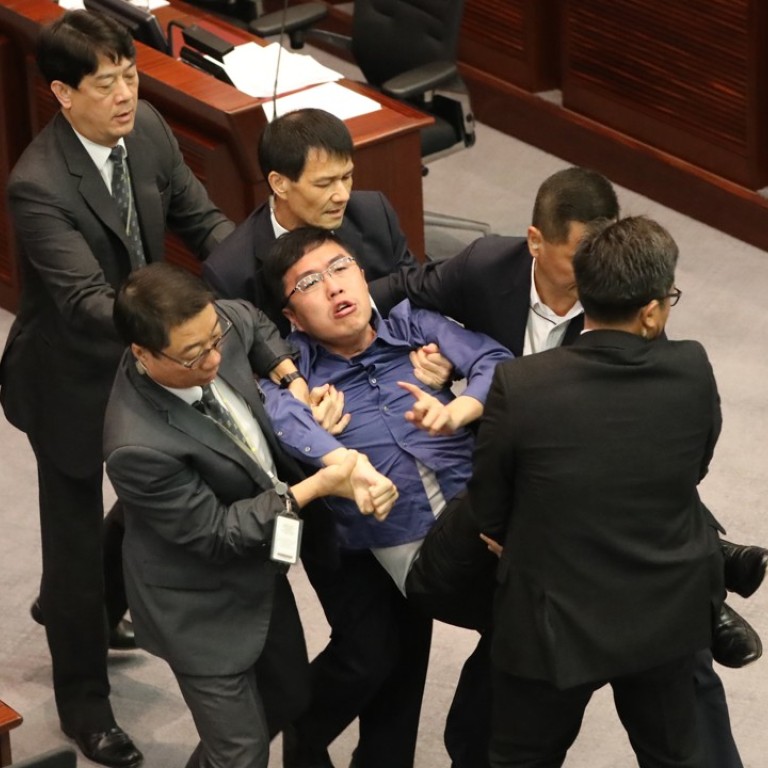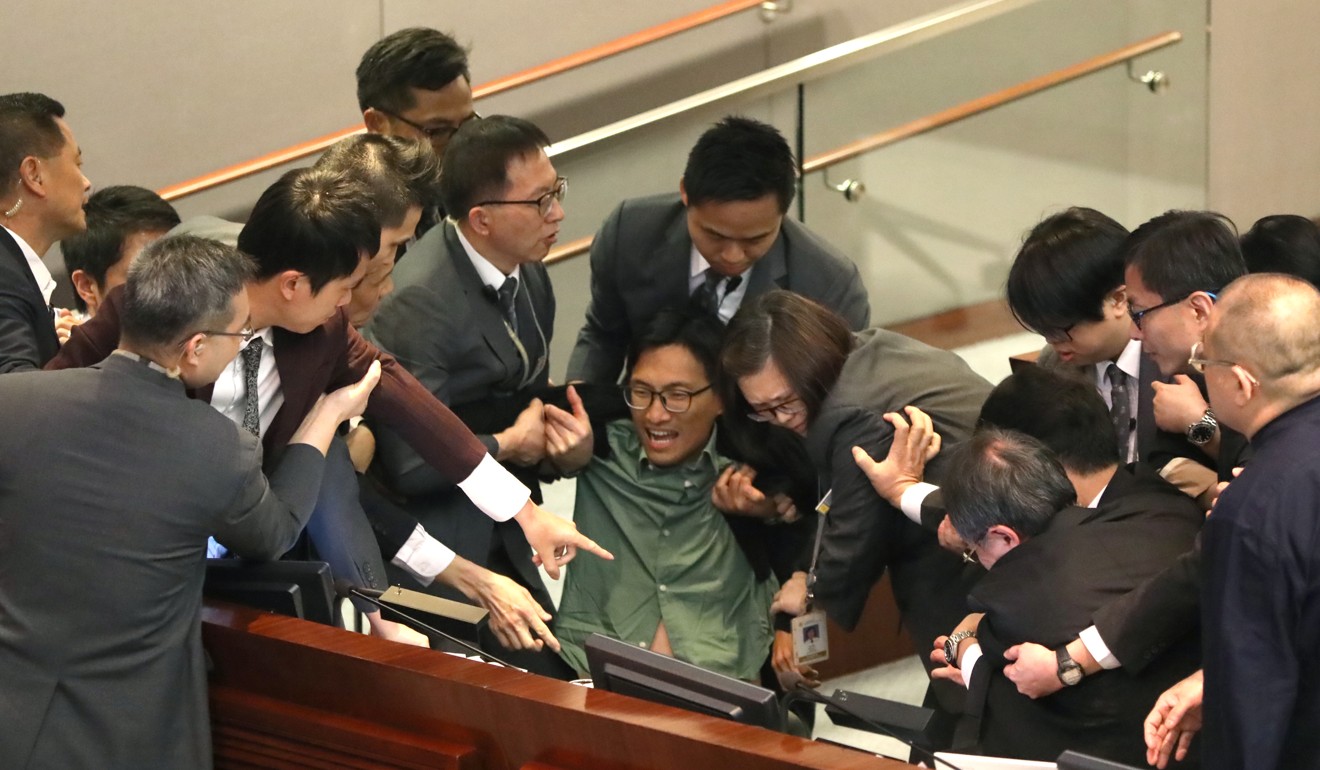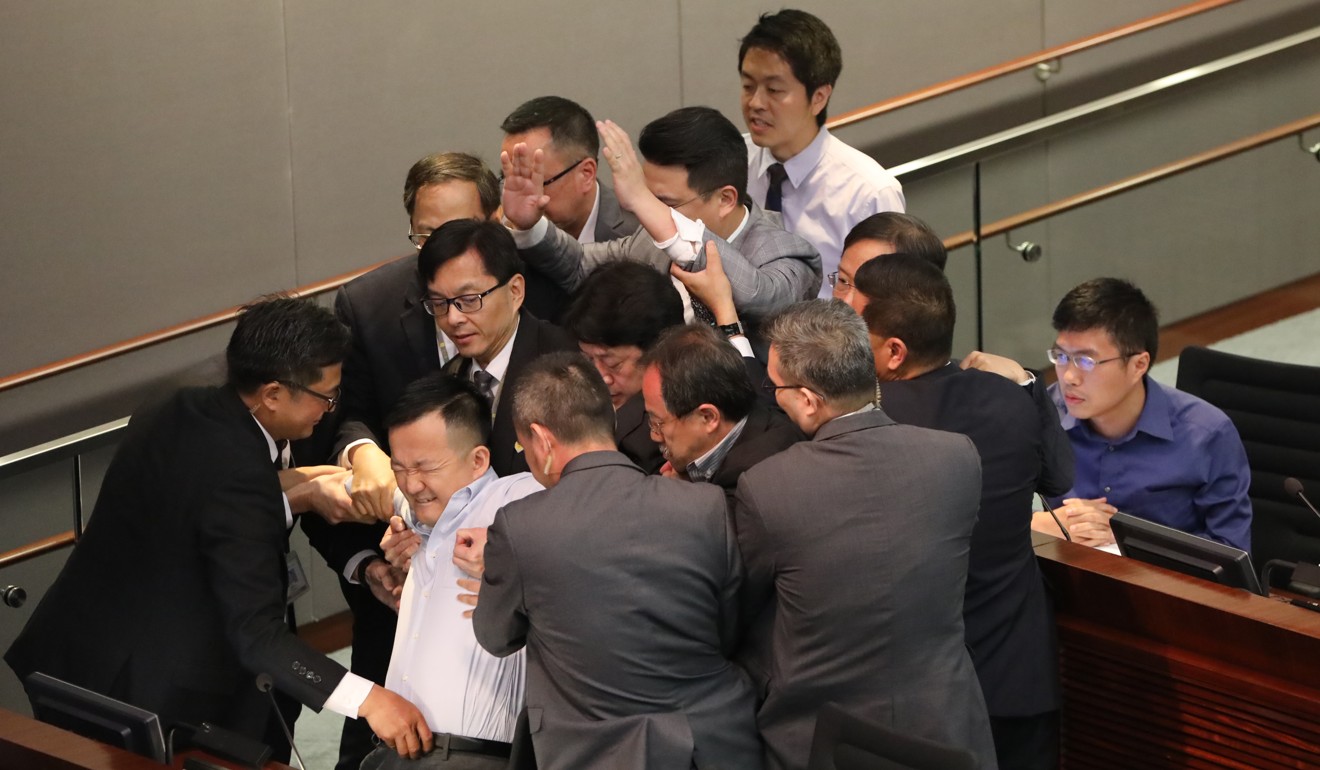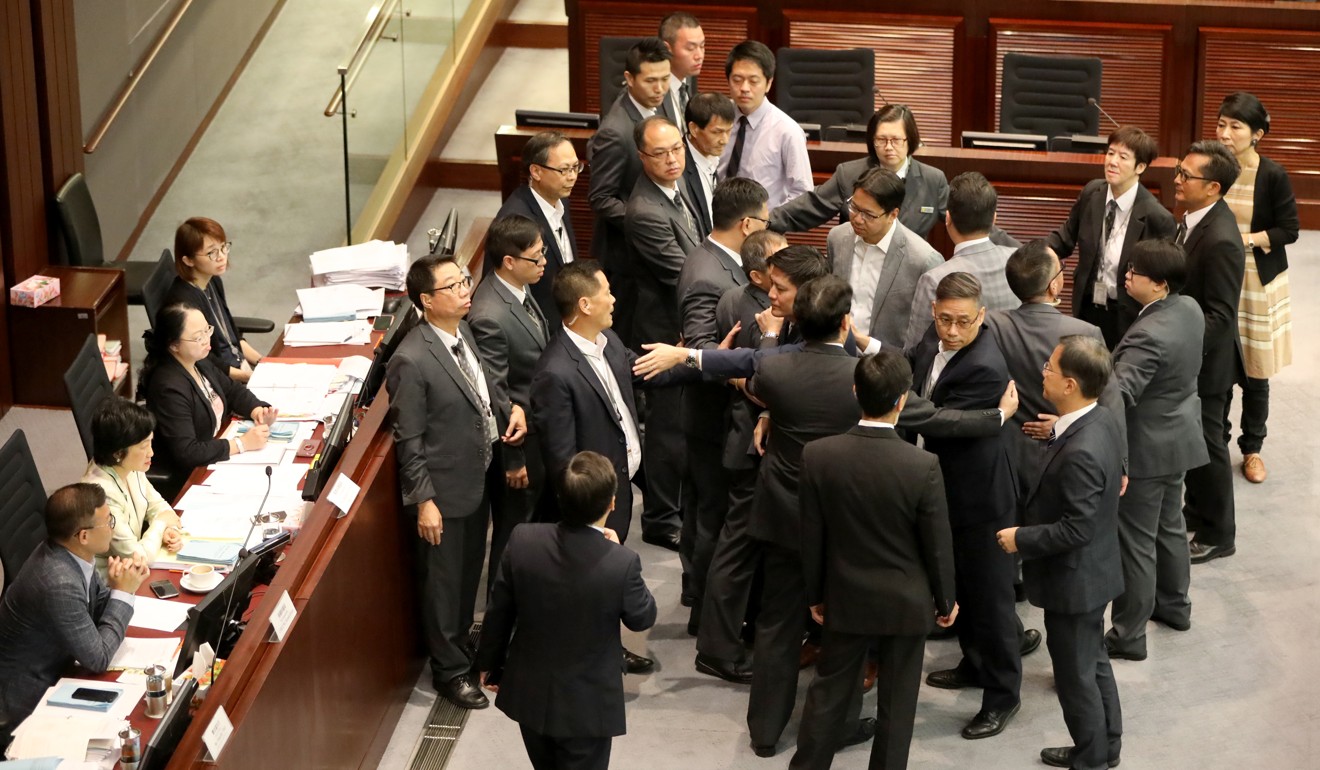
Joint checkpoint plan on track to become law for Hong Kong’s high-speed cross-border rail
Pan-democrats hit out at panel chairwoman as bid to delay vote on controversial legislation fails
A highly controversial bid to allow mainland Chinese laws to be enforced on the Hong Kong side of the cross-border rail link passed its first major hurdle in the legislature on Monday amid rowdy scenes as four protesting opposition members were physically removed from the chamber.
“We have also witnessed how the chairwoman ... has exhausted all means since this morning to violate the rules of procedures to so-called wrap up the work today,” said lawmaker Charles Mok, convenor of the opposition camp which considers the joint-checkpoint or “co-location” arrangement to be unconstitutional. “The pan-democrats will for the first time issue the strongest condemnation against Ip.”

Carrie Lam shows support for Regina Ip over chaotic panel meeting

At one stage, Ip put to vote a series of amendments initiated by a single lawmaker, claiming there was no objection when she first proposed it. But she backed down later to allow voting on them one by one, after consulting with Legco’s legal adviser.
She also deviated from common practice by not offering at least a minute for each vote, with the shortest taking just six seconds.
Respect decisions by China’s top legislative body just as we did British authorities, Hong Kong minister urges
They have already made up their minds to oppose it, so there’s no point to delay voting
When Ip started earlier by giving each lawmaker just one minute to ask a question, it sparked noisy protests and she ended up having security guards drag away Jeremy Tam Man-ho, Raymond Chan Chi-chuen, Au Nok-hin and Eddie Chu Hoi-dick as they yelled and clapped sarcastically to protest against her “unreasonable” attitude.
Legco president Andrew Leung Kwan-yuen later accused some of them of physically assaulting security guards who dragged them out of the chamber, and reserved the right for the legislature’s administrators to take further action.
Ip strongly condemned their conduct and defended her efforts to speed things up.
“They have already staged a show against it and they have already made up their minds to oppose it, so there’s no point to delay voting because of their show,” she said. “Everyone else can vote [within seconds], are the pan-democrats particularly stupid?”
Secretary for Transport and Housing Frank Chan Fan backed Ip’s handling of the acrimonious session, stressing that the government’s joint-checkpoint proposal was both lawful and constitutional.
The co-location arrangement will see national laws enforced over a designated zone leased out to mainland Chinese authorities as a port area.
Chan revealed on Monday that the administration was considering whether to make the bill effective some time before the formal operation of the express rail link, as officers from across the border would need time to “familiarise, practise and rehearse” before the mainland port area was properly set up.
Chan would not give details, but said the time for such rehearsals would be minimised.
But Civic Party lawmaker Tanya Chan, also the convenor of the Co-location Concern Group, voiced concerns that local court rulings might be ineffective if the bill was legally challenged through a judicial review.
“If a judgment is handed down after the commencement date, I doubt whether the court order would be effective in [the mainland port area],” she said.

The opposition lawmaker vowed that her camp would again move its amendments to the bill during the next stage of scrutiny, and urged the Legco president to ensure the bill was in line with the Basic Law.
“The Basic Law has stipulated lawmakers can only pass bills that are constitutional, and we have been repeatedly reminded of that responsibility by the Bar Association,” she said. “It is Leung’s responsibility ... to seek legal advice to check whether the law is indeed constitutional instead of toeing the government’s line.”


